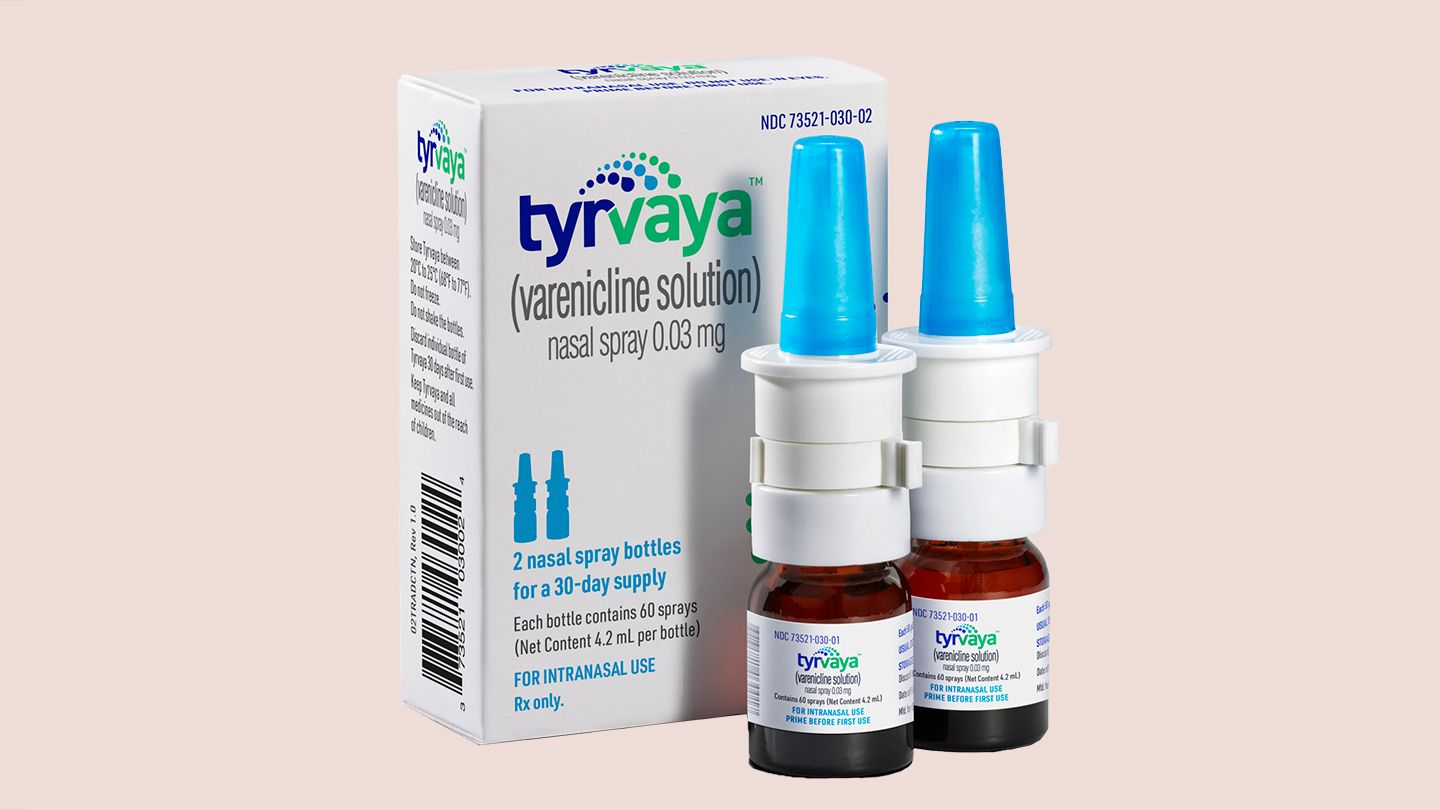Treating a Stuffy Nose: Can You Take Flonase and NyQuil Together?
A stuffy nose can be downright miserable. Your nose feels congested and blocked up, making it difficult to breathe through your nose. The congestion can also lead to sniffles, sinus pressure, headaches, and disrupted sleep.
When over-the-counter medications don't seem to help, you may be wondering if you can take Flonase and NyQuil together. After all, Flonase is a nasal steroid that treats stuffy noses, while NyQuil contains medications that relieve cold and flu symptoms. Could using both provide more relief?
Below, well explore whether it's safe and effective to take Flonase and NyQuil together. Well also overview other methods for relieving a stuffy nose quickly at home.
Is It Safe To Use Flonase and NyQuil Together?
Flonase and NyQuil are both over-the-counter medications that are generally recognized as safe when used as directed. However, there are a few things to consider before taking them simultaneously:
- Flonase contains fluticasone, a corticosteroid that reduces inflammation. It takes regular daily use to work. NyQuil contains acetaminophen for pain/fever relief, the cough suppressant dextromethorphan, and the antihistamine doxylamine for sneezing and congestion relief. NyQuil causes drowsiness.
- While occasionally taking Flonase and NyQuil together is unlikely to cause problems, chronic, long-term use of them simultaneously is not recommended. Using too many antihistamines long-term can cause side effects.
- Take care not to exceed the maximum daily dose of either medication. For adults, this is 2 sprays of Flonase in each nostril daily and 4 doses of NyQuil in 24 hours.
- Alcohol should be avoided when taking NyQuil to prevent increased drowsiness. The acetaminophen in NyQuil also carries a risk of liver damage when combined with heavy alcohol use.
- As with any medications, observe how you feel after taking them together. If you experience worrisome side effects like severe dizziness, pounding heart, nervousness, or confusion, stop use and contact your doctor.
Overall, occasional use of both products together is unlikely to pose major problems. However, it's best to avoid chronic long-term use of antihistamines found in NyQuil without medical supervision. If your symptoms persist despite using both medications, see your healthcare provider for evaluation.
Will Using Flonase and NyQuil Together Work Better For a Stuffy Nose?
Flonase and NyQuil work in different ways to combat congestion and other cold/flu symptoms. But is using both simultaneously more effective?
Probably not. Since Flonase needs to be taken daily for the steroid effects to build up over time, taking it only situationally with NyQuil will not boost its decongestant effects. The doxylamine in NyQuil may provide extra temporary congestion relief. However, it also causes drowsiness as a side effect.
Overall, combining the two medications may provide more congestion relief initially. But the effects likely wont last long-term. Only consistent use of Flonase will treat the underlying inflammation behind your stuffy nose.
Other Ways to Find Fast Relief from a Stuffy Nose
While medications can certainly help, there are also simple home remedies that can provide fast relief when your nose is congested:
Try a saline nasal spray or rinse
Saline solutions can help thin out mucus and flush out congestion. Spray a saline nasal spray into each nostril. Or use a Neti pot or nasal irrigation device to rinse your nasal passages.
Run a humidifier
Dry air can lead to congestion. Running a cool mist humidifier, especially at night, adds moisture to the air to open your nasal passages.
Take a steamy shower
Inhaling steam helps loosen mucus and provide congestion relief. Take a hot shower and breathe in the steamy air.
Use essential oils
Peppermint, eucalyptus, and menthol oils can help open up a stuffy nose. Add a few drops to a diffuser, inhale them directly, or mix them with a carrier oil and rub onto your chest.
Drink hot tea
Sipping a hot cup of tea can help thin mucus and hydrate inflamed nasal membranes. Try herbal teas with pepper, mint, or ginger.
Apply a warm compress
Placing a warm, moist washcloth over your nose and cheeks helps open up nasal passages. Alternatively, use a microwavable facial compress filled with grains or rice.
Use a neti pot
A neti pot rinses out your nasal cavity with a sterile saline solution. This thins mucus and flushes out blockages.
Try over-the-counter nasal strips
Nasal strips pull open the nasal passages with an adhesive bandage. While results vary by individual, many find strips like Breathe Right provide relief.
Sleep propped up
Sleeping flat out can worsen nighttime congestion. Prop yourself up on a pile of pillows to allow nasal drainage.
Stay hydrated
Dehydration can thicken nasal secretions. Drink plenty of fluids like water, broths, herbal tea, and juice.
When to See a Doctor for Relief
While home remedies can go a long way, seek medical treatment if:
- Your stuffy nose lasts more than 10 days without improvement
- Congestion is accompanied by facial pain or headaches
- You experience yellow or green nasal discharge, indicating an infection
- You have a sore throat, cough, or fever along with congestion
- Congestion disrupts your sleep or ability to breathe comfortably
A doctor can examine your nasal passages, treat any underlying infection, and recommend prescription decongestants if needed.
Preventing Future Stuffy Noses
Once you get congestion relief, keep these tips in mind to avoid future stuffy noses:
- Use a saltwater nasal rinse regularly to keep nasal passages moisturized
- Avoid cigarette smoke and heavily polluted areas that irritate the nasal lining
- Limit use of nasal decongestant sprays to avoid rebound congestion
- Treat underlying allergies if they contribute to congestion
- Stay hydrated and use a humidifier, especially during dry winter months
- Get adequate rest and avoid dry indoor air to support immune function
The Bottom Line
Treating a miserable, stuffed up nose quickly is key. Occasionally using Flonase and NyQuil together can provide some extra congestion relief. However, only consistent use of Flonase will reduce underlying inflammation. Home remedies like saline rinses, steam, and hydration also work wonders.
If your stuffy nose persists despite treatment or is accompanied by other symptoms, see your doctor. With the right care, you can breathe easy once again.
Disclaimer: This article is for informational purposes only and does not constitute medical advice. Always consult with a healthcare professional before starting any new treatment regimen.
Related Coverage
From first signs through recovery, learn what to expect each day of a typical cold. Get tips to ease sore throats, congestion, coughs plus advice on complications....
Black mist irrigation creates a fine, cooling mist to efficiently water plants. Learn the pros and cons, design considerations, installation, and ideal applications....
Putting Vicks VapoRub in your nose seems like a fast sinus relief hack. But this risky use can cause painful irritation, breathing issues, and toxicity....
Waking up congested and stuffy is miserable. Try using a humidifier, neti pot, nasal strips, steam, and more remedies before bed to prevent morning nasal congestion....
Looking to quiet an irritating cough that's keeping you up at night? Try these soothing home remedies like humidifiers, throat lozenges, steam showers, and more to finally get some sleep....
Learn whether you can take NyQuil 4 hours after Sudafed decongestant based on differences, side effect risks, dosing guidelines and what to do if interactions occur....
Discover how to incorporate Mediterranean inspiration into your bedroom with the perfect bedside tables featuring natural woods, iron accents, and artisanal details....
Relieve sinus congestion and open clogged nasal passages with effective home remedies like steam, hydration, saltwater rinses, sprays, aromatherapy oils and more....
Honey remains a top natural cough remedy for fast relief day or night. Keep a jar handy to instantly soothe sore throats, reduce coughing fits, allow restful sleep....
Wondering if you can take Dayquil and Flonase together for a stuffy nose? Learn about the safety, potential side effects, and tips for using these medications properly....









